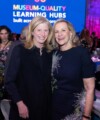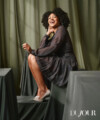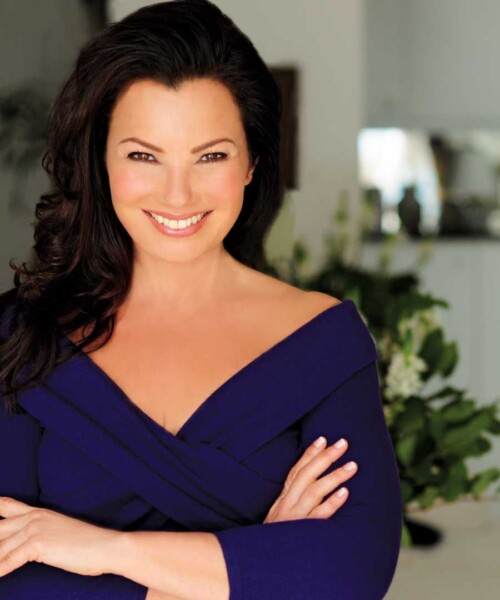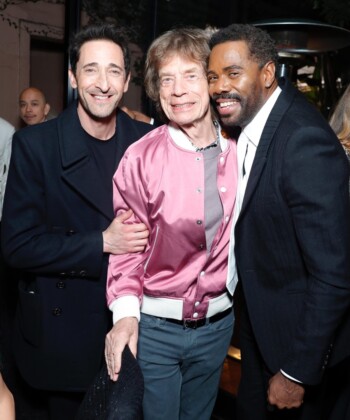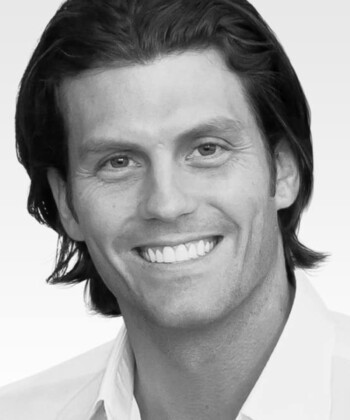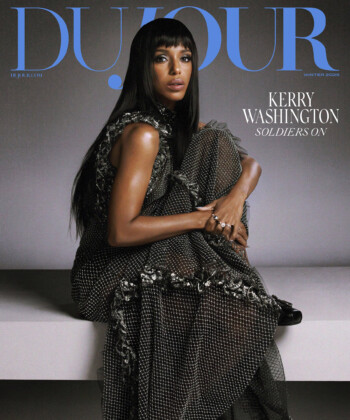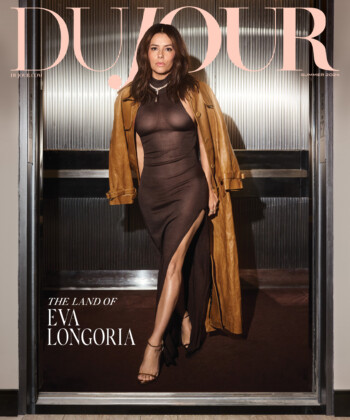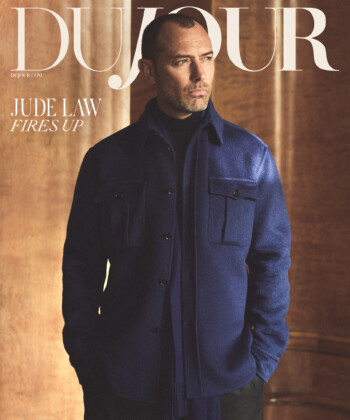When she’s acting, Fran Drescher likes to take cues from her real life. Last year’s Happily Divorced, a second act in sitcoms for the former Nanny, was based on Drescher’s relationship with ex-husband Peter Marc Jacobson. Lately, though, the New York comedienne has been drawing on her experiences for a much bigger role—no acting involved: Following her 2002 memoir Cancer Schmancer, in which she chronicles her battle with uterine cancer and recovery from a radical hysterectomy, an invigorated Drescher started the Cancer Schmancer Movement and has been making headway in a whole new direction. “I think cancer put me on a tailspin so I could come out the other end of it a rebuilt, reinvented person,” she tells DuJour.
Now, at 56, the actress is willed enough to take on anything from leading public service campaigns to running for elected office, even—especially side-by-side with a young new partner, Shiva Ayyadurai. Below, she chats with DuJour about the new “Don’t Drink and Drive,” her thoughts on adoption and her newfound joy in life.
How did your Cancer Schmancer Movement start?
I went through some hard times and I got cancer. I had to go through eight different doctors before getting a proper diagnosis. I got in the stirrups more times than Roy Rogers, and I didn’t want what happened to me to happen to other people—the misdiagnosis and mistreatment.
So I wrote up Cancer Schmancer, which became a New York Times bestseller, and when I went on the lecture circuit, I realized that what happened to me had actually happened to millions of Americans. I realized my book was just the beginning of what became my life mission: this movement.
What’s the movement about?
We focus on early detection—that’s the cornerstone. Then on prevention: More and more I began to see that America has “cure fatigue.” We’ve written the checks, we’ve walked the walks; where is the cure? Cancer is not going to go away, so we need to stop bombarding our immune system with toxins. Over 90 percent of cancers is environmentally stimulated, and I realized the home, it turns out, is the most toxic place that we spend the most time in and, ironically, have the most control over.
So the other part of the movement is getting the conversation going in America, and we’re doing that through our Detox Your Home campaign, informing the public about the dangers of bringing carcinogenic products into our homes. We hope to make “Detox Your Home” the “Don’t Drink and Drive” of the 21st century.
You’re actively involved in the healthcare conversation happening in Washington now because of this. Did you ever imagine that this was something you’d do?
Initially my motivation was to turn my pain into purpose and get back a sense of control and destiny in my life. I always saw myself as a superwoman, as everybody’s caregiver, and here I was—the one out of everybody in my world to get cancer. The cure for my cancer was a radical hysterectomy, which is especially difficult for someone who never had a child. The cure was almost a punishment because at the time, I was in love with a man who ignited my desire to have a child.
Have you ever given thought to adoption?
Yeah, I actually think about it. I’m very aware of the responsibility of raising a child; I don’t want to bring one into the world or adopt one to fill a void. I also I didn’t think I wanted to do it as single parent, but I have a lot of friends that do.
Maybe in the next couple of years that will happen, when I feel like I’ve finished what I needed to do and I can put more energy into the raising of a young one. My life is good, I don’t want to complicate it. I’ve been challenged in my life many times over and I have the means to even run for an elected office and accomplish things that way, so there’s this tug of war between remaining a potent public figure on the landscape and refocusing my attention into raising someone that can continue to raise the torch. That’s always the struggle I have.
How is everything else going? You’re currently in a very happy relationship.
I’m blessed that we met. After my previous relationship ended I knew I was ready to experience a healthy relationship with a mature, adult man who has the confidence and accomplishments to feel confortable around someone like me. He’s a genius. The brain is the sexiest organ, and he’s sexy—very sexy. We say we’ve been together for 2 months and 7000 years. We’re excited to be in each other’s lives.
For more info on Drescher’s organization, visit cancerschmancer.org.
MORE:
What It’s Like Being Married to a Plastic Surgeon? The Wives Bare All
How Goldie Hawn Is Brightening Up the Next Generation’s Future
Creating a Safer Environment at Home for Our Kids







